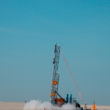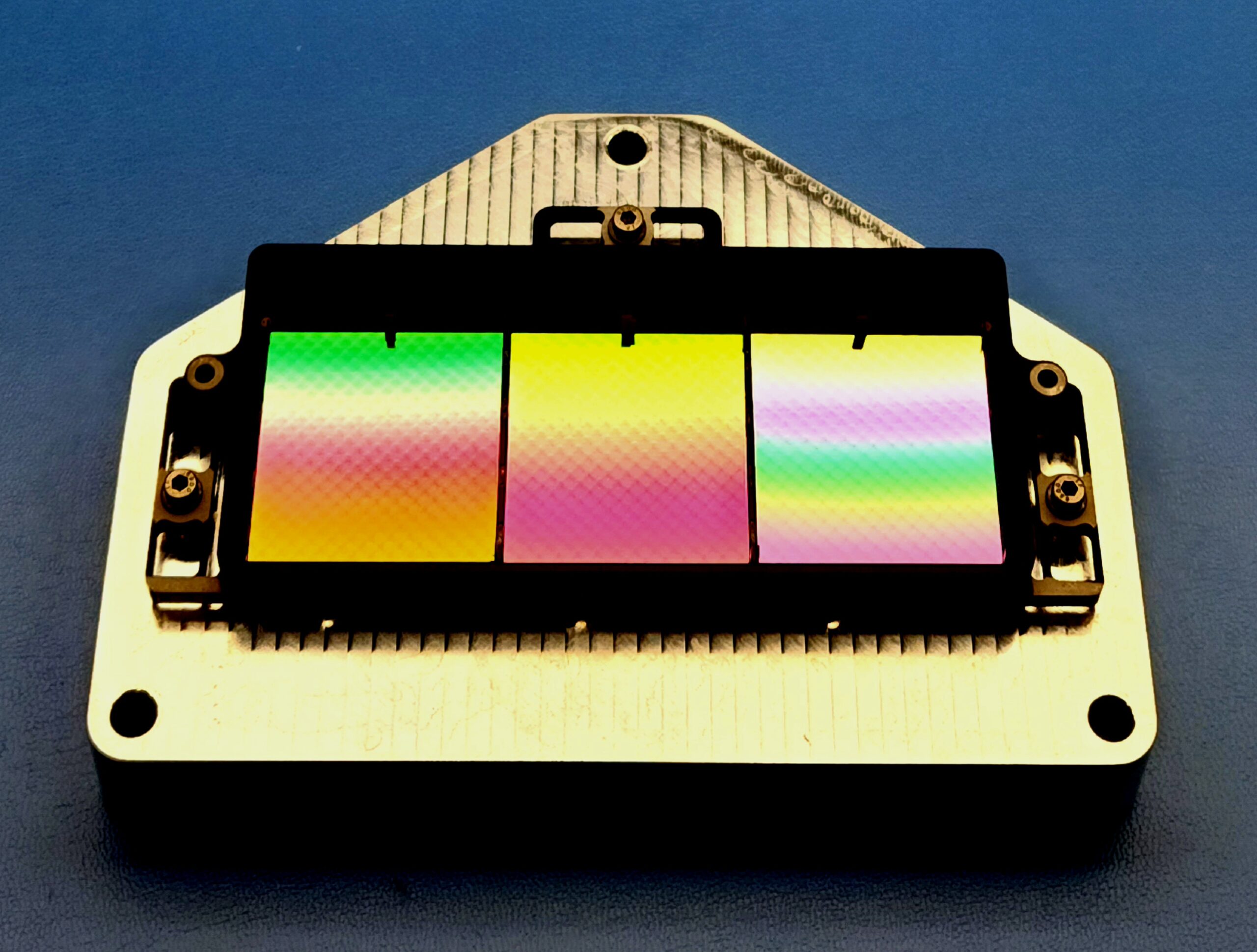- IDDK’s Micro Bio Space LAB (MBS-LAB) on ATMOS will be launched aboard SpaceX’s Falcon 9 NET April 2025.
- The MBS-LAB features IDDK’s patented one-chip microscopic observation technology, Micro Imaging Device (MID), designed for autonomous biological experiments in microgravity.
- The mission will validate the feasibility of satellite-based biological experiments, enabling breakthrough research in drug discovery, aging, and biotechnology.
- This marks a significant step for IDDK toward establishing a cost-effective and frequent access platform for microgravity experiments in space.

IDDK, a pioneering Japanese space-tech startup, announces the upcoming demonstration flight of its Micro Bio Space LAB (MBS-LAB)—an autonomous biological experiment platform engineered to operate in microgravity. Scheduled for launch with ATMOS Space Cargo (ATMOS), a leading European space logistics startup, on a SpaceX Falcon 9 mission no earlier than April 2025, this milestone flight will put IDDK’s cutting-edge technology to the test and herald a new era for in-orbit life sciences research.
IDDK’s Proprietary Technology
The centerpiece of IDDK’s platform is the Micro Imaging Device (MID), a patented semiconductor-based, lens-free microscopic observation system. By eliminating the need for traditional optical components, IDDK’s technology enables high-resolution, real-time imaging of biological samples in a space environment where every gram of payload mass matters to the cost. The integration of MID into MBS-LAB means researchers can observe cellular structures, tissue responses, and biochemical processes directly in orbit, with minimal manual intervention.



“By enabling continuous, autonomous observation of biological samples in space, our MID technology has the potential to transform space-based life science research—making it simpler, more cost-effective, and more frequently accessible,” said Kohei Yoshioka, Co-CEO & CFO of IDDK.
Mission Objectives
This maiden flight of the MBS-LAB platform is a critical step toward large-scale commercial and institutional microgravity research. IDDK has set three primary objectives for the mission:
- Validating Autonomous Operations
Demonstrate that the MID technology can perform continuous, automated biological observations in the microgravity environment of Low Earth Orbit (LEO). This involves verifying both the reliability of power supply and data management systems that support in LEO environment, remote-controlled experiments. - Capturing Real-Time Imaging Data
Gather comprehensive imaging data of experiment sample. This capability will fuel research in areas such as tissue engineering, drug development, and aging processes—offering valuable insights that are often obscured by Earth’s gravity. - Demonstrating Feasibility Beyond the ISS
Prove that satellite-based platforms like MBS-LAB can serve as a viable alternative to the International Space Station (ISS) for detailed biological experiments. With the ISS approaching the end of its operational life, and access often limited, satellite-based research offers a scalable and flexible path forward for the global scientific community.

“Traditionally, orbital research has been constrained by ISS schedules and limited space,” said Kohei Yoshioka. “Our goal is to streamline these experiments and make them as accessible as ground-based labs.”
Micro Bio Space LAB – A New Era in Space Biology
Autonomous and Cost-Effective
By operating without crew intervention, MBS-LAB addresses one of the biggest hurdles to orbital research: reliance on astronaut time and resources. This autonomy allows frequent and extended experiment timelines, which benefits long-term biological studies, such as regenerative medicine, cancer research, and complex tissue growth experiments.
Compact and Lightweight Design
Because mass and volume constraints are paramount in space missions, IDDK’s MID technology radically reduces payload size without compromising the quality of imaging. This miniaturized system opens the door to more complex experiments within a smaller footprint, ultimately lowering launch costs and expanding research possibilities.
Potential for Sample Return
In addition to autonomous monitoring in space, future versions of MBS-LAB can offer the option for sample return to Earth. Such a capability would enable researchers to combine space-based observations with detailed post-mission laboratory analysis—providing a holistic understanding of biological processes that unfold in orbit.
“By fusing orbital experimentation with post-flight analysis, we accelerate the pace of innovation in numerous fields, from pharmaceuticals to organ-on-a-chip technologies,” commented Kohei Yoshioka.
Collaboration and Future Vision
IDDK’s broader mission extends beyond a single demonstration flight. By partnering with global research institutions, biotech companies, and manufacturers, the company aims to establish a frequent and accessible “in-orbit lab” service. This cost-effective platform would support numerous sectors, including:
- Pharmaceuticals – For improved drug screening, toxicity tests, and accelerated development.
- Biotechnology – To explore tissue engineering and synthetic biology in microgravity.
- Regenerative Medicine – For stem cell research and organoid growth studies, potentially revolutionizing transplant medicine.
- Advanced Materials – By observing crystallization processes under unique orbital conditions, which could yield breakthroughs in microelectronics and biomaterials.
“We’re building a robust ecosystem that unites industries, academia, and government agencies, all with the shared vision of harnessing microgravity for breakthrough discoveries,” said Kohei Yoshioka.
While waiting for the upcoming demonstration mission, IDDK started accepting the consultation for the commercial flight of in-orbit lab service expecting to launch in 2026. For more information, please contact IDDK’s Communications Team at iddk_info@iddk.co.jp.
Further details will be released in the coming weeks, underscoring the collaborative nature of this landmark mission.
About IDDK
IDDK is a Japanese space-tech startup committed to expanding low Earth orbit research and applications by providing a suite of technologies that simplify and demystify microgravity experiments. At the core of the company’s innovation is the Micro Imaging Device (MID), which enables high-resolution microscopic observation without the mass and volume penalties of traditional optical systems. Through partnerships with academic institutions, private industry, and space agencies worldwide, IDDK aims to usher in a new generation of frequent, cost-effective, and highly flexible in-space research opportunities.
For more information, visit https://iddk.co.jp/ or contact at iddk_info@iddk.co.jp.
++ END OF PRESS RELEASE ++









